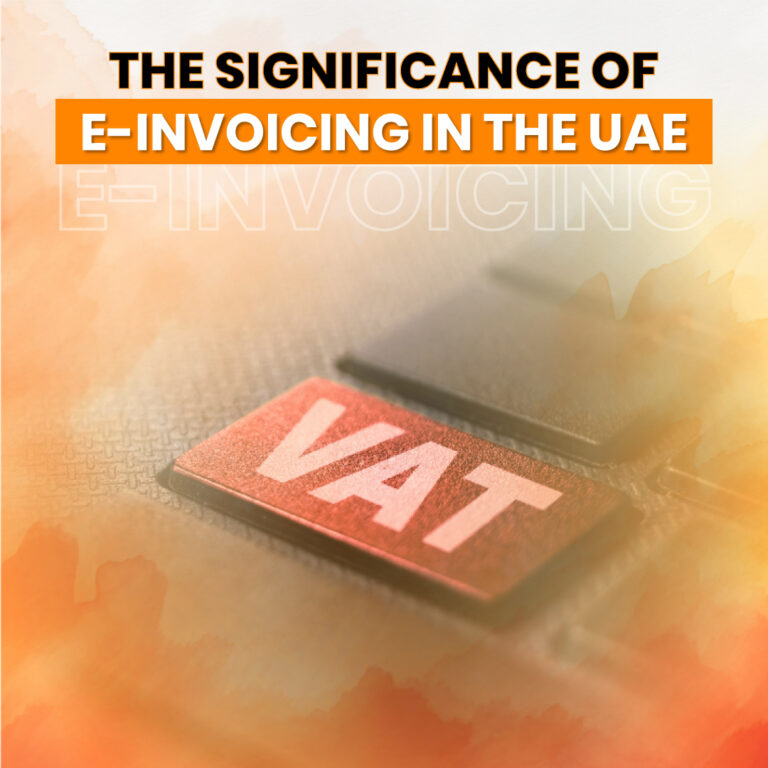The emergence of e-invoicing in the UAE has caused a major change in how businesses handle their billing procedures in the fast-paced corporate world of today. Driven by the rise in digital transactions, e-invoicing has become a global standard as a quicker, safer, and more effective alternative to traditional paper-based billing.
Many EU industries have now embraced this modern strategy, which is changing how businesses process payments and optimize their processes. However, what is e-invoicing exactly, and why is it used by so many companies?
In this article, we’ll go over the fundamentals of electronic invoicing services, look at important worldwide trends, and emphasize the benefits it provides for businesses of all kinds.
Basic Overview of e-Invoicing
By transmitting, receiving, and storing invoices digitally, e-invoicing replaces paper-based processes. E-invoices are created and processed using electronic technology rather than paper ones. It enables faster communication and automatic payment processing.
A range of accounting and ERP systems can use e-invoices because they all follow the same electronic invoice format. Convenience, fewer mistakes, and bills that adhere to tax and legal requirements are all advantageous to businesses. E-invoicing streamlines company dealings and improves transparency and compliance across the industry.
Purpose of E-Invoicing for Businesses
Understanding e-invoicing’s function in corporate operations is crucial given its growing significance on a global scale. E-invoicing contributes to your company’s growth and better operational management.
By switching to electronic invoices, you can ensure data accuracy and secure preservation while also meeting international invoicing regulations. Customers and partners are more open and confident as a result of this transformation. Additionally, e-invoicing allows you to boost operational efficiency by using real-time invoicing.
The Impact of E-Invoicing on UAE Companies
Companies will have to adhere to certain e-invoicing forms, validation guidelines, and real-time reporting requirements. Integration with ASPs will be required for this, either via plug-in software or APIs.
- Investing in Technology: Businesses that use manual invoicing or outdated systems will need to make investments in automation technologies, ERP updates, and staff training.
- Decreased Fraud and Tax Evasion: The government hopes to improve the overall tax environment by reducing tax evasion, bogus refund claims, and fictitious invoicing by requiring real-time data sharing with the FTA.
- Penalties for Failure to Comply: For organizations that do not fulfill their e-invoicing responsibilities, the FTA is anticipated to impose stringent compliance through financial penalties and perhaps legal repercussions.
The Major Obstacles of e-Invoicing for UAE Businesses
Businesses in the UAE face several difficulties as they make the switch to electronic invoicing, especially regarding technical specifications and legal compliance. Among the main difficulties are
-
Continuous and Real-Time Transmission
Companies need to make sure that invoices are created and sent to the Federal Tax Authority (FTA) in real-time. Because any lag could cause operations to be disrupted or result in non-compliance, this calls for a strong infrastructure to handle continuous data flow without delays.
-
Integration with FTA Systems
Companies must connect the FTA’s e-invoicing site to their current systems. Particularly for companies that depend on outdated systems or lack the technical know-how for smooth integration, this can be challenging. It is crucial to make sure that data transfer is compatible with the Peppol network.
-
Digital Signature and Document Authenticity
To guarantee its legitimacy and compliance, every electronic invoice needs to be digitally signed. Companies must also make sure that the content of the invoices is not changed, which calls for safe systems that can monitor and safeguard data integrity at every stage of the invoice lifecycle.
-
Follow VAT and e-Invoicing.
Companies must make sure that their electronic invoices satisfy both VAT standards and e-invoicing laws. Businesses will probably need to directly connect their e-invoicing data with their VAT return files in order to use the electronic invoice system.
Scope of e-Invoicing in UAE
Although the precise extent of e-invoicing in the United Arab Emirates is yet unclear, it is expected to closely resemble comparable regulations in other GCC nations, especially Saudi Arabia (KSA). For all B2B and B2C transactions, e-invoicing would most likely be required for all VAT-registered companies (introduced in phases). To be prepared for compliance when the mandate fully takes effect in July 2026, businesses need to keep themselves updated.
Overall, computerized invoicing modifies the way businesses handle their cash flow. By replacing traditional paper invoices with digital ones, it promotes transparency, reduces errors, and boosts efficiency. As e-invoicing develops, it offers businesses increased accessibility, better cash flow, and a more efficient process. E-invoicing can help you streamline your company’s operations and set it up for future expansion in the online market. You just need to have the right knowledge and required skills to leverage its benefits. Consider enrolling in a professional-led course like the UAE e-Invoicing course by Owais Mirchawala to get all the key details of e-Invoicing, its process, features, and possibilities in the current digital economy, regardless of your familiarity with it or your curiosity about how it will affect your company.
Frequently Asked Questions (FAQs)
Q: What are the benefits of e-invoicing?
Ans: E-invoicing saves a lot of money on human resources, intra-office routing, printing, postage, and archiving. simplifies processes and expedites payment. Businesses can cut down on errors, save time, and maintain smooth cash flow by automating invoicing procedures.
Q: What is the importance of the UAE e-invoicing course?
Ans: An e-invoicing course is important for UAE businesses due to the upcoming mandatory implementation of e-invoicing by 2026.
Q: Why is e-invoicing required?
Ans: The electronic invoicing solution ensures accounting accuracy, minimizes human error, and expedites the GST credit claim process.





